Fire interview with Juraj Havidić
After a few failed attempts we finally found Juraj Havidić, singer/guitarist of the band Fire, power trio from Yugoslavia, formed in 1972, that spent most of their early years touring Holland and Germany. A band that was hand picked by Captain Beefheart to be his opening band, but then the drummer fell ill and was hospitalized for 3 months, so it never happened. Their only LP Could you understand me from 1973 has a cult following among collectors today, but the band is virtually unknown at home and there is generally very little known about them today.
It turns out today Jura has his own studio and is a fairly well known producer; and he recently reformed the band. We met in his favorite bar near his home in Zagreb suburbs and he almost immediately starts telling stories of the band:
I’m glad and a bit surprised young people are interested in this music. You said you’re from Celje, right? We played there once in the 70s. I had a cool psychedelic hat made out of rags. It was a Yugoslavian tour and the management was promoting us as a foreign band, so the deal was we’re not supposed to talk much to the people and reveal ourselves that we’re from Yugoslavia. Anyway, I’m playing with this hat and I heard some guys talking: “Steal his hat, steal his hat!”, and I was not supposed to show that I can understand them. So I was playing and singing and waiting for someone to sneak behind me and pull off my hat. Which they did. They ran, and security ran after them, and off they went and I never saw them or my hat again (laughs).
What happened to the other two band members?
Bass player Miljenko Balić lives in Čakovec. He had his own small business, he was a goldsmith and he fixed watches. He retired a couple years ago. He gave up playing music a long time ago, though.
Do you keep in touch?
Yeah, we speak quite often, actually. You should interview him too. I’m pretty sure he’d love to talk about the band. When you go to Čakovec just ask anybody – of the slightly older generation – where can you find Balić who played in the band Fire (laughs). It’s a small town and everybody knows him.
What about Emil Vugrinec?
That’s a tragic story. He died 3 or 4 years ago in a domestic accident. He fell of a ladder and broke his neck. I loved him dearly, he was a wonderful man and a good friend. We were best men at each other’s wedding.
Who influenced you the most?
Mostly Jimi Hendrix, then Cream and in the early days Johnny Winter. He’d influence me a lot, with his guitar playing style, but also singing. I loved Johnny Winter a lot, he would sing with soul and he was full of energy.
But later on, when we started to write our own songs with the band, I paid special attention to that we wouldn’t be a copy of anybody, you know… even though it happens in life that you become a copy and you don’t even notice, because you’re filled with music and, unknowingly, inserts from other songs sneak into your work. For example, I heard that ‘If you’re alone tonight’ sounds a lot like that band… what’s it called… butterfly something …
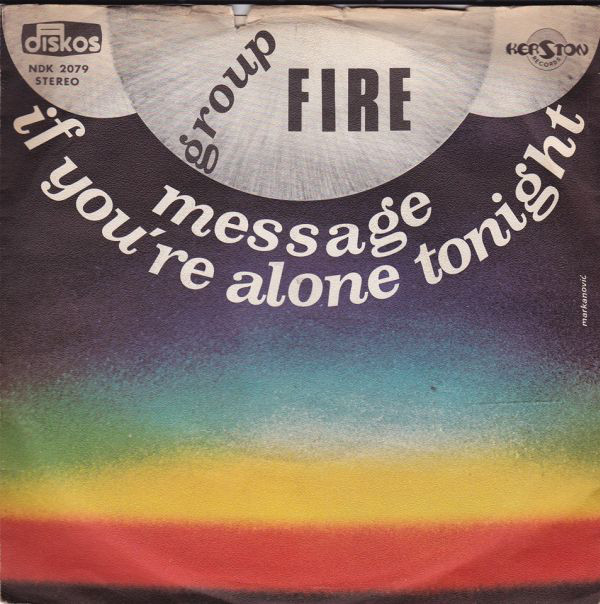
Iron Butterfly?
That’s right. I never even listened to that band, so I couldn’t have taken anything from them. But also stylistically people say, even now that we play again, that we remind them of Cream a lot.
Did you have a band before Fire?
I did. As a high school kid – I finished high school of chemistry – the first band was called Acesal, named after pills (laughs), later us kids formed Pop express, named after a musical newspaper, that was about ’67, ’68. Anyway, first real band was Fire. Later on, when we returned from Europe, we made a deal with two guys from group Demoni, and we became Demoni – Fire. In 1980, when I was seriously considering to stop playing altogether, we briefly had a group called Izazov (challenge) , which was a very good band from Zagreb; and after that a band Daj, but we didn’t record anything.
What about Izazov, did you record anything?
They did have an album, but I didn’t record with them. That was a well known Croatian band, with Đimi Matešić who played in ‘Plava trava zaborava’, big bands, etc. Then in 1981 we started a cover band, we played paying gigs, like for example in Bled in winter tourist season, etc. But it wasn’t overly commercial music, really. It was more rock’n’roll, meaning it was Top 100 list, but we picked only songs we liked, more guitar based songs.
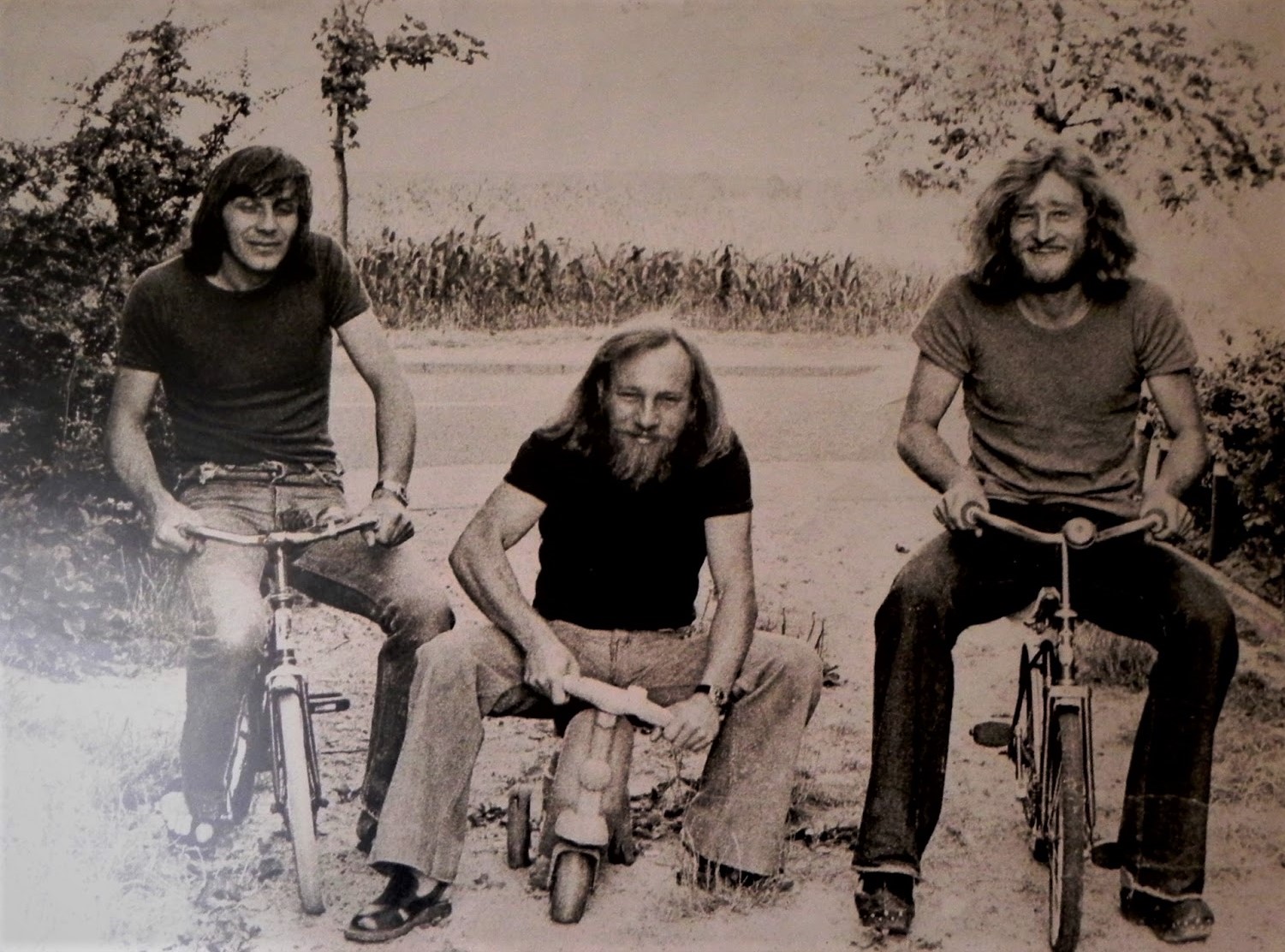
Did local groups like Time, Pop mašina, influence you?
Well, in a way, they did. I’ll put it this way: when we came back from Germany for our first Yugoslavian tour with bands like Time, Smak, Parni valjak, etc., I can’t remember them all; the most famous groups in Yugoslavia at the time, me and Dado Topić were talking about doing something together. It was more a joke, but I took it seriously and I wrote a song thinking how to persuade Dado Topić to sing with us. That song is called ‘Za tebe, draga’; you can find it on the Internet. So that song sounds like it was written by him. I just hope he doesn’t accuse me of stealing his ideas (laughs).
Why did you decide in 1973 to go to Holland, and why Holland?
Actually, we were based in Germany, in a small town near Holland border, it’s called Neukirchen-Vluyn, near Moers and Duisburg; so we spent more time in Holland playing; depending on how our manager worked out the gigs. We actually played both small clubs and large gigs more often in Holland than Germany.
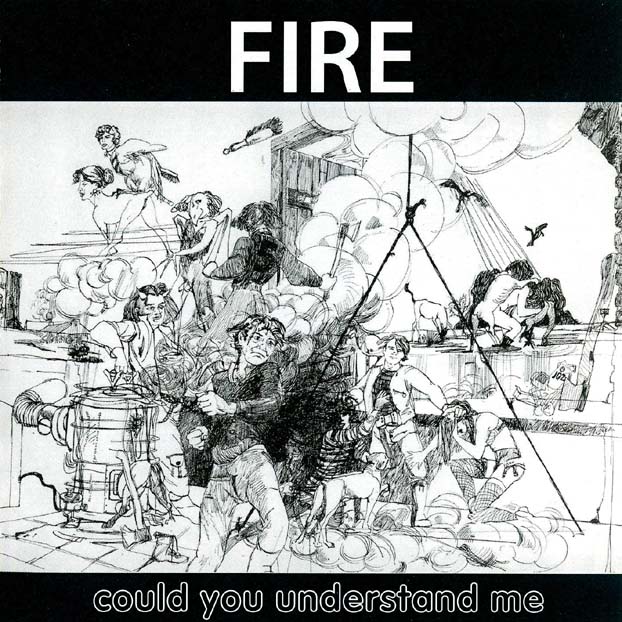
How did you start Fire?
Us three were serving the Yugoslav army together. We all played in the military marching band.
You played guitar in a military band too?
Yes, I did. By the time we finished serving the military, the three of us were already firmly decided to form a band as soon as we get out. We went to Germany, Balić and Vugrinec worked in a mine shaft. Balić had a technical education so he worked in the control room, and Vugrinec was actually working underground. They did all this for the sake of the band, and we had money, that wasn’t a problem. I was lucky and I didn’t have to work. Before the first gig, we rehearsed for a year, every day, twice a day; before noon and in the evening. We got really good and after a year I felt I was going to explode, I was like: “Let me on the stage already!” Once we started playing, we lived off music.
What was the first gig like?
The poster for our first gig read: ‘Fire – Yugoslawische hard rock’. And there was a red five point star in one corner, and a hammer with a sickle in the other, symbols of communism. That was our management’s idea, and we went: “What are you doing? They’re going to kill us!”, and the management persuaded us it’s going to be great, people will fight each other to get in. And they were right, it was sold out and it was great.
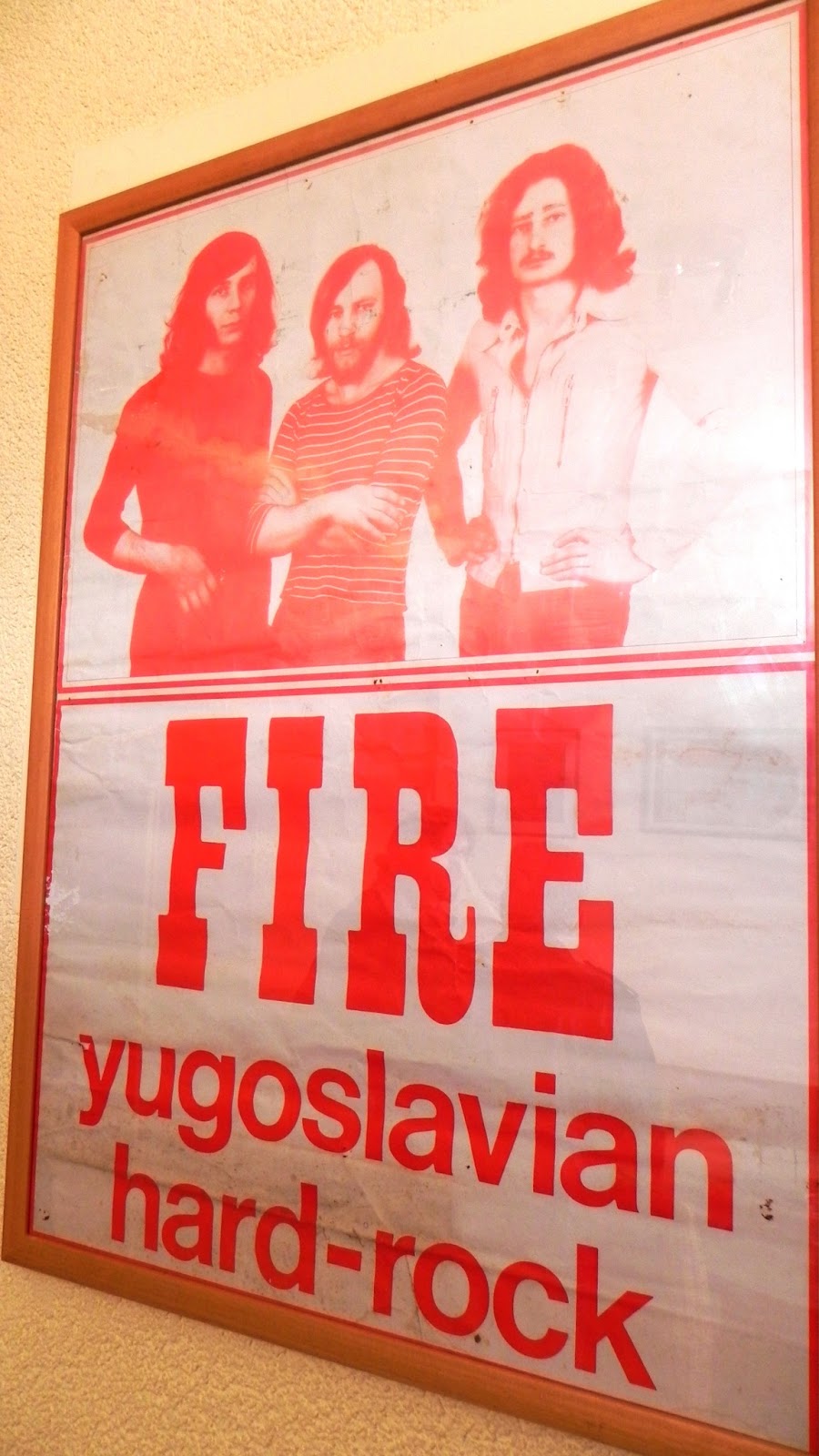
Who was the manager?
Our manager was Horst Schroers, he was pretty well known at the time. He made some financial ‘slips’, as we found out later. We worked with him for about 3 years, and he owed us money… I guess he didn’t give even half of the money he was supposed to. Later on we found out that he had huge debts to the government. Otherwise, he was managing Slade.
How did the name Fire come about?
Oh, that’s an easy one. The name comes from Hendrix’ song “Fire”, I always knew the name of the band will be Fire, and there was not gonna be any discussion about it. It was a no-brainer, never even considered any other names.
“We were supposed to open for the Rolling Stones.”
How did the recording of the LP look like?
That was all made in one night. We were supposed to open for the Rolling Stones. Our manager Horst and Stones’ manager were making a deal, and their manager obviously wanted to hear how the band sounds like. So Horst says: “We’re gonna give them our LP now.” “But we don’t have an LP,” He says: “We’ll record it tonight.” (laughs). So we entered the studio in the evening and in the morning the recordings were done.
Unfortunately, there was some kind of error on the vinyl stamper and the first pressings were late, so we failed to secure the deal to be the opening band for the Stones. I’m really bummed out about that because I always wanted to play with a band of that magnitude and in front of such a huge crowd, because that’s when you can really put out everything you’ve got.
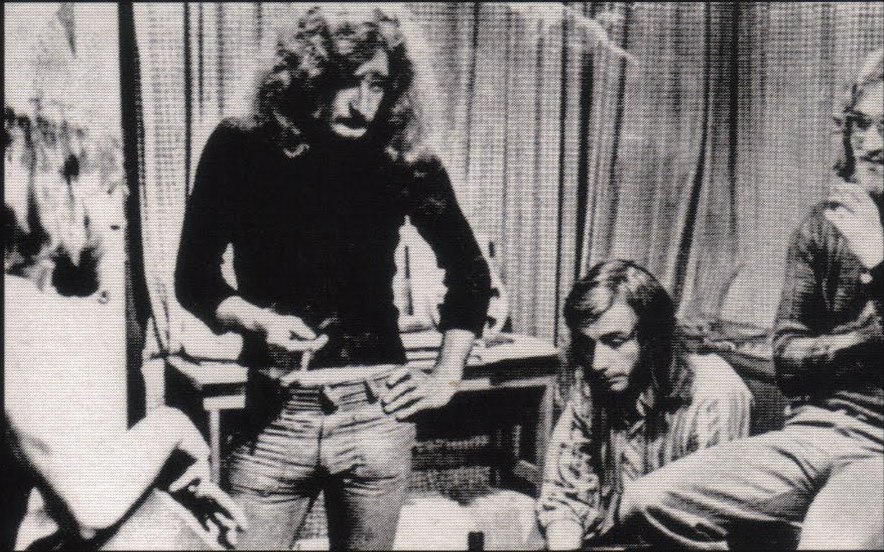
How many takes of each song did you take?
What takes? (laughs) There was no time, it was all first takes, all live.
We were in the studio for the first time. Somewhere on the album I’m playing slightly out of time for a little while. The thing was, the headphones slipped off my ears and I tried to pull them back on while playing and singing the whole time . I fell out of tempo slightly, but somehow managed to put them back and on we went with the song…
What places did you play in Germany?
We played hundreds of clubs all over Germany, small clubs from 200 people up to a 1,000. Same in Holland. There were a lot of those clubs.
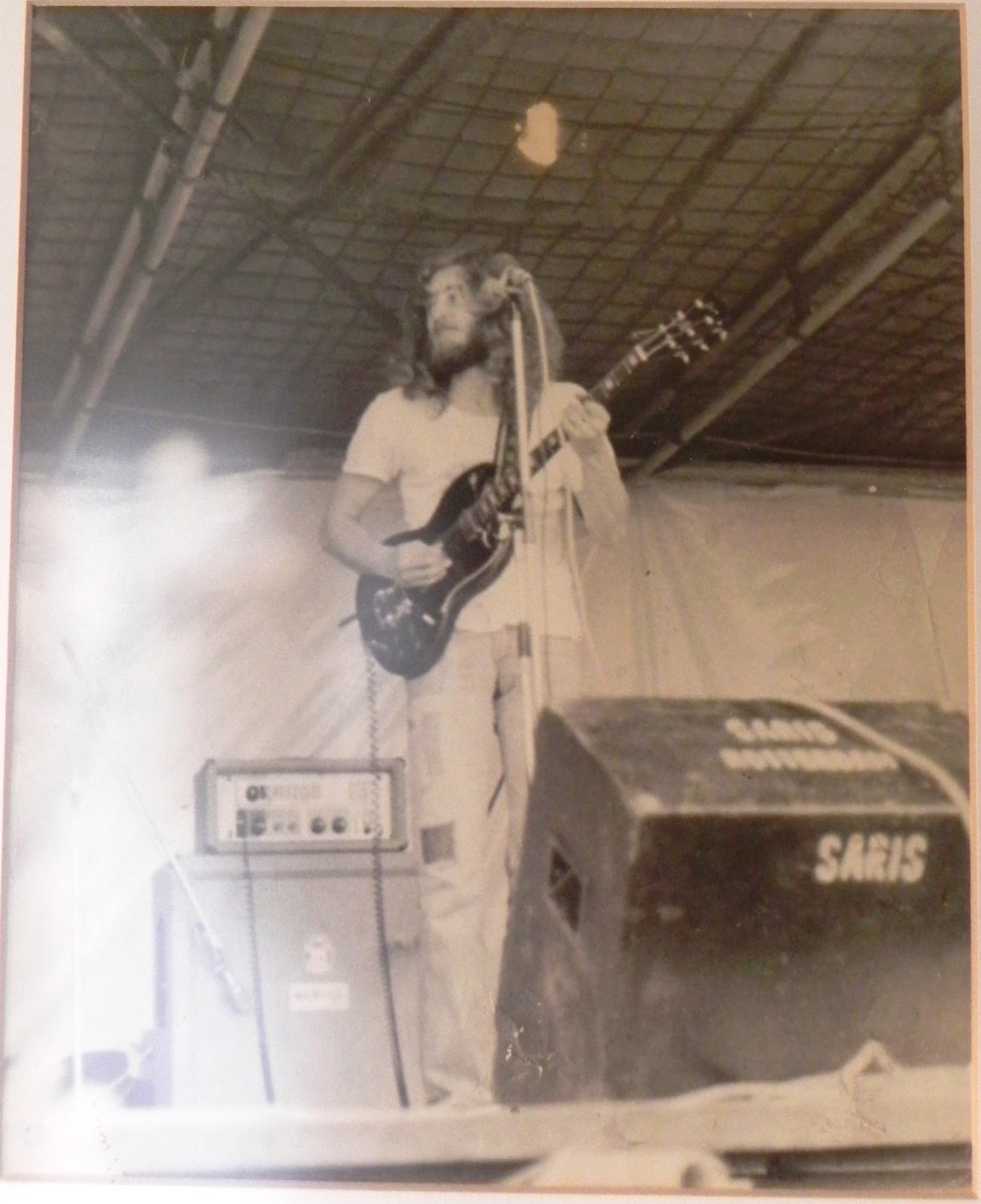
What bands did you play with?
In larger clubs and concert halls, in front of 5,000 – 10,000 people, we played mostly with German bands, like Birth Control, Guru Guru, Amon Düül II, UFO… There was this electronic band, I can’t recall their name, they were unknown at the time, but later on they were no. 1 in the world…
Cluster? Neu?
No, no. They played in Zagreb a couple of years ago…
Kraftwerk?
Yeah, yeah, Kraftwerk, that’s it, you got it. We laughed at them, they played ‘la-la-la’ on their little computers, while we were the real rockers (laughs). But we’ve played with all sorts of groups. We played a number of smaller disco clubs and opening for us was this singer who was singing to pre-recorded background music, his name was Frank Farian. He’d later claim world fame with Boney M.
Did hallucinogenic drugs like LSD influence you, did you have access to them?
No.
Nothing?
No. You see, as a young kid I was an athlete, I loved martial arts, karate, stuff like that. I took care of myself and my health. But I hung out with people who used drugs in abundance. I’ve seen all that. I don’t really know, maybe it’s because I came from this, maybe a bit more ‘primitive’ place, all of that seemed like science fiction to me. I didn’t even want to try it. But many people here in Yugoslavia thought I was using, because of the progressive image, long hair, etc. But in reality, it was just the opposite.
What about the rest of the band?
They felt the same way, yeah.
What kind of gear did you use in studio?
Well, that’s interesting. I played an Orange amp; I had two guitars at that time: one was Klira, a German made guitar. It wasn’t a top notch product, but it suited me really well. And I had a Gibson as a spare (laughs), despite it’s a much better guitar. I wanted to record something with the Gibson, so I played one blues song. That was because I wasn’t used to Gibson yet; it was brand new and it takes a while for a guitar to break in, takes a year or two before it really starts to suit you. So the funny thing is, I recorded the album on some cheap guitar and the real one was in the reserve.
Did you have this gear before you left for Germany?
No, I bought Gibson and Orange in Germany.
What did you have before that?
I had a Vox AC30. My dad used to work in Germany and he brought me one. That was already in 1968. Not many people had that. I used both, Vox for smaller gigs and Orange for big stages.
(He opens the case and shows us his Gibson SG standard): I had a couple of guitars, they came and went, but this is the only one that stayed with me since the early days. People ask me to sell it, but I tell them there’s no way. This guitar suits me really well because it’s so easy to play. You see, I have quite small hands and short fingers, and this guitar is really soft, look at this: (he bends the G string right off the fretboard) I can bend the strings two steps with ease. Bigsby is factory original, everything is.
Was the neck ever broken and repaired? It’s quite typical for SG…
No, it was never broken. But the headstock is pretty beaten, see? I used to throw it down and toss it around on stage quite often (laughs). Yes, I did that.
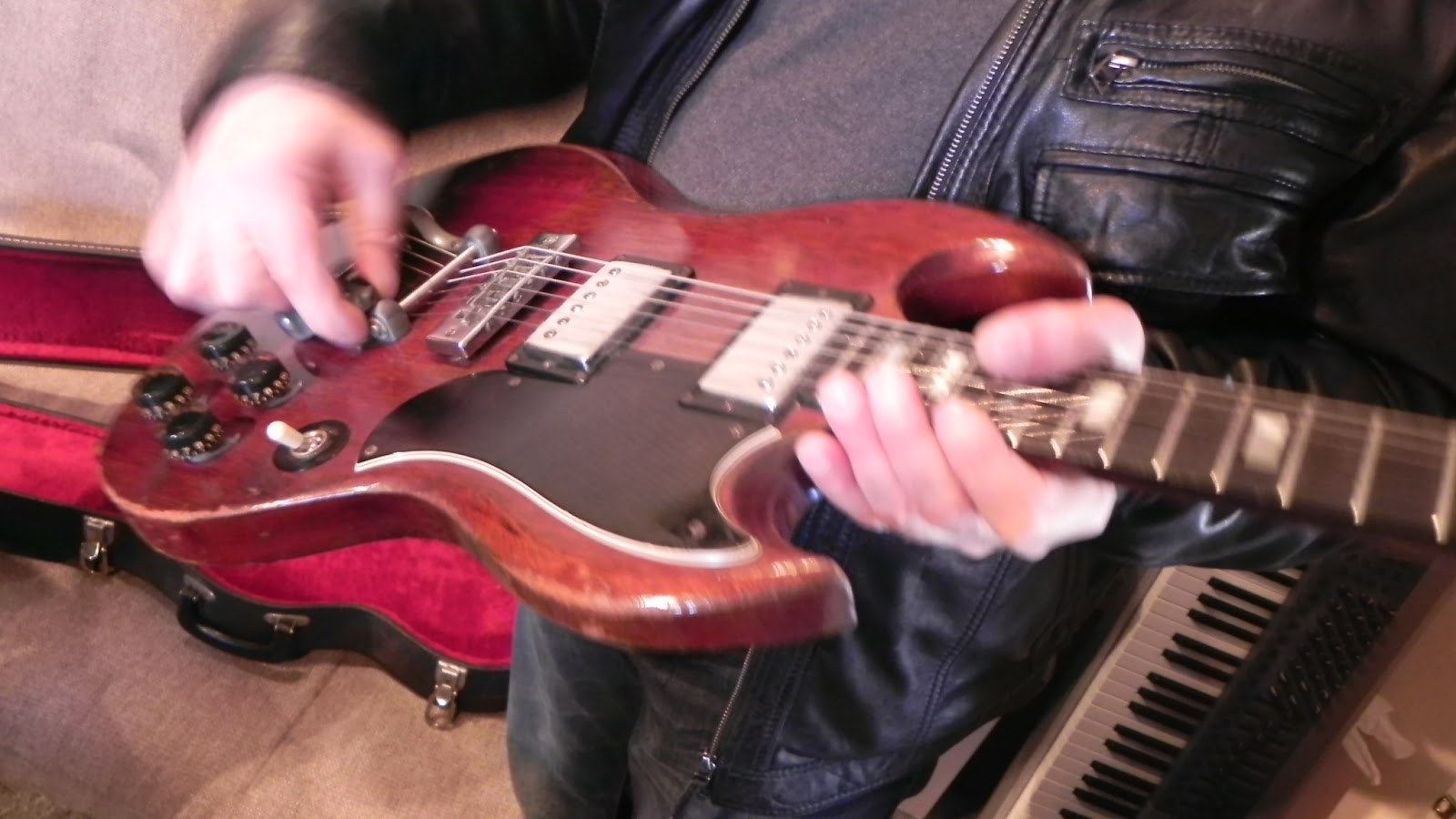
What about Balić and Vugrinec? What did they use?
Balić had a Marshall amp for bass, and Vugrinec had a Ludwig Big beat drumset. That was top of the line drumset at the time; we specifically searched for Ludwig.
And Jazz bass, I presume?
And Jazz bass. I have that bass in this studio, I can show it to you.
Here it is. It’s 1973. It’s all original, except Balić swapped the potentiometer knobs with some poorly made Chinese ones. Look at this. Why would he do that? It’s stupid. I’m gonna buy some original ones and send it to him…
I wanted to buy this bass from him, since he wasn’t playing anymore. But he said OK, let it be here in your studio, since you’re still fiddling with music, but one day I’m gonna ask you to give it back! (laughs). But I’m glad that the original bass from the group Fire is here. I was actually searching for those Ludwig’s as well, I wanted to buy them for the studio. They were sold somewhere in Međimurje near Čakovec, but I couldn’t locate them.
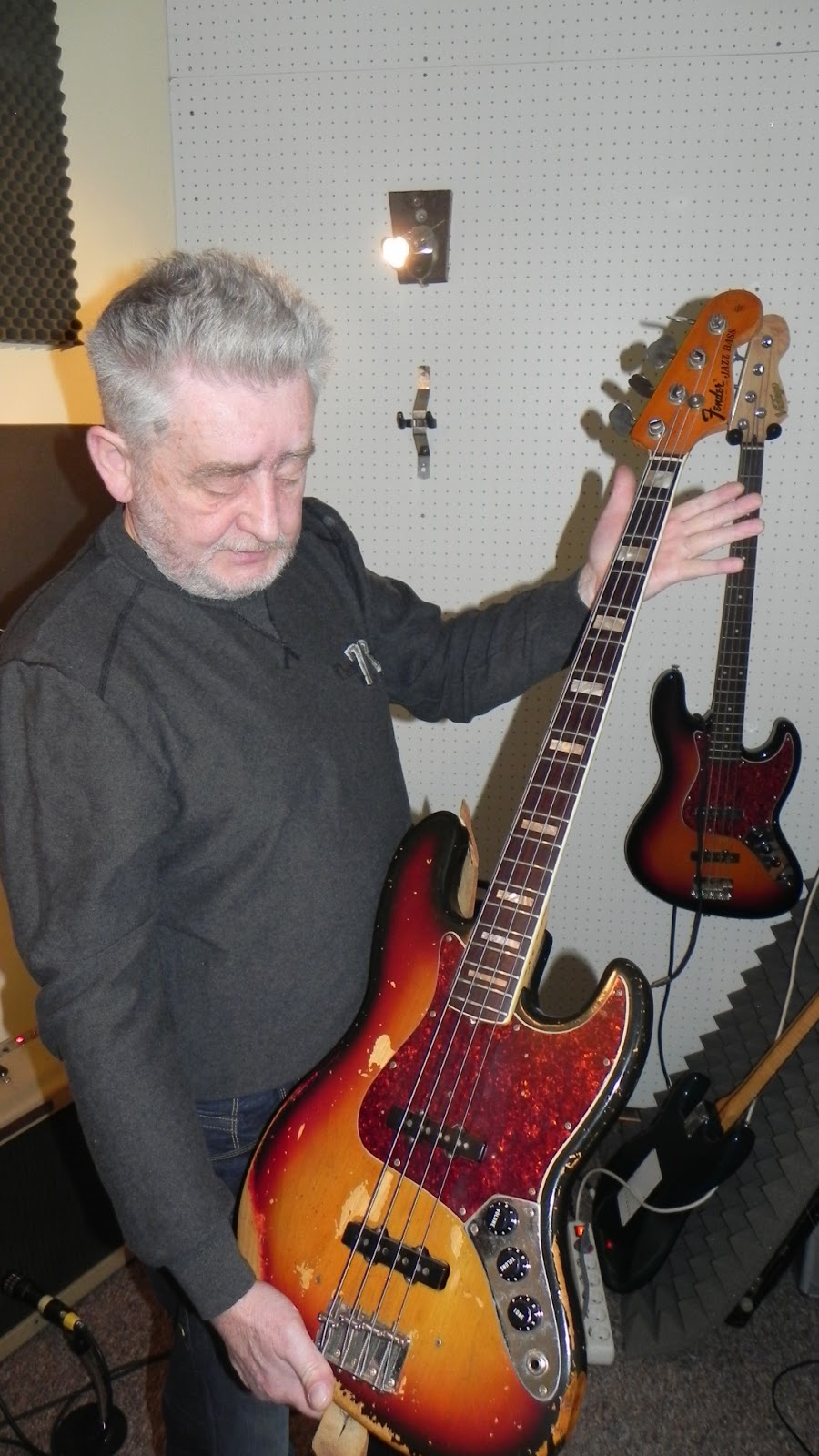
(the phone rings and the ringtone is Hendrix’ “All Along the Watchtower”. The lyrics to the song are hanging off a radiator in the studio as well) You still like Hendrix a lot?
Yes, this song is one of my favorites. We used to play it live back then, too.
What covers did you play?
We had a few Hendrix songs; we played “Inside Looking Out” by Grand Funk Railroad; then Cream, Yardbirds etc. But we really played mostly our own material. A typical night would be our own songs and maybe one or two covers. In smaller clubs where we had to play more time, we would of course play more covers. But the focus was on our songs, we weren’t a cover band.
So what happened…
Can I light a cigarette?
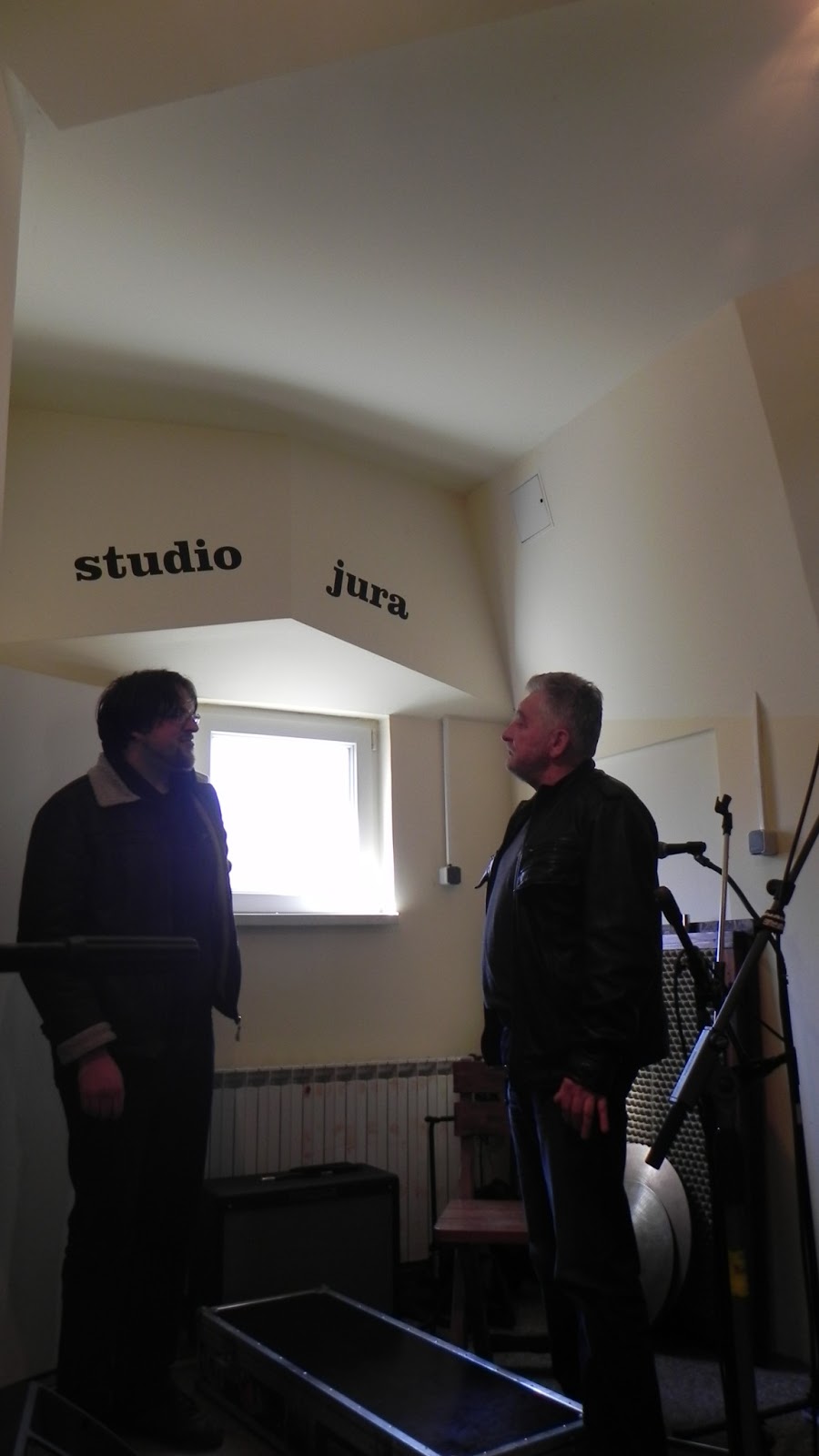
Sure. So, what happened when you returned? You recorded “Message” and “If You’re Alone Tonight”.
We recorded “Message” and “If You’re Alone Tonight” in Germany and we brought them to Zagreb to be released as a single. But this gentleman in Croatia Records, some smart ass he only liked classical music, he didn’t want to listen to rock’n’roll.
We came in and he made us sit down and be quiet. We would sit quietly for 20 minutes and he was listening to Mozart, like this (makes a snobby face), and after 20 minutes he says: “THIS is music, not that garbage of yours.” And he wouldn’t even listen to our songs. What an asshole. I think he still works there, or at least he was until recently. I can’t remember his name right now… I’ll remember it though. Man, I’m still angry. If I see him again, I’ll say: “Hey, let me buy you a whiskey. Splat! Into his face!” (laughs). Yeah, you can quote me on that… “This is music”, he says. Well, I never said there’s anything wrong with classical, but why put other music down?
Then a producer, a friend of ours made a deal for our single to be released in Aleksandrovac. Diskos it’s called, I think. And that single was played a lot in Yugoslavia, on jukeboxes. When we were on tour, we could come in a pizza place or a coffee shop and we would hear “If You’re Alone Tonight” being played five times in a row, people would be putting money in the jukebox constantly. It was very popular. And I think people thought we were from Europe, they didn’t know we were from around here.
How did you write the songs for the LP? You all wrote, right?
Well, I did most of the songwriting, about 80%, 90% and we all wrote the lyrics together, although the bass player Balić now says: “No, those are all your lyrics. The drummer wrote some, “Where Are You” is completely his, music and lyrics. Then there was… just a minute… I’m looking if it’s on the reissue LP… not, it’s not. “Sunny Day”, “My life”; he wrote the lyrics and I wrote the music. We will release this song this year when we make the album.
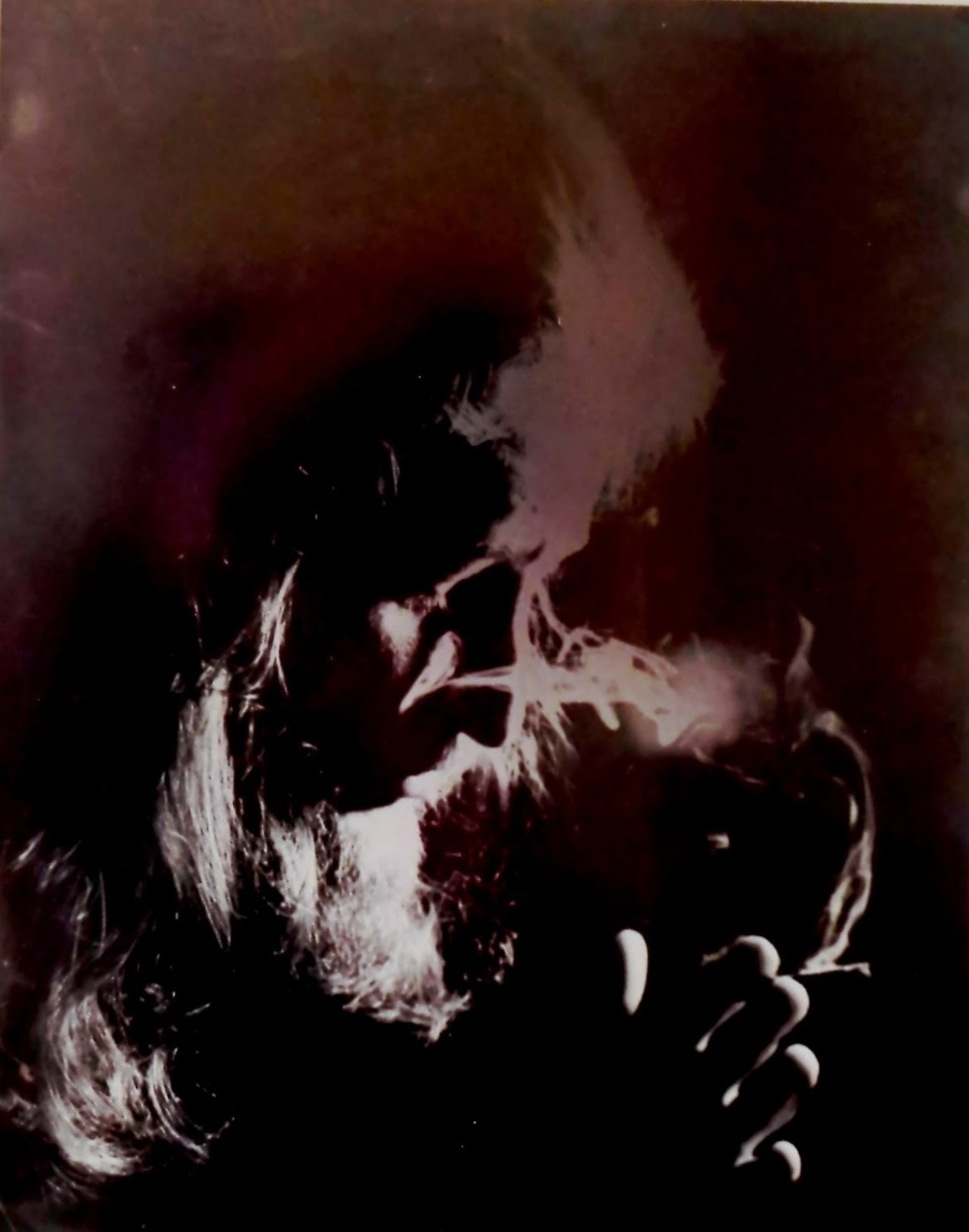
What can you tell us about “Flames”, the last song on the album? There were a lot of effects used on that song.
Aha. You see, this song was created by coincidence, we didn’t plan it at all. We recorded the songs and the Man says “You don’t have enough material”. So we said, 3 -4, let’s go, and we made that song in the studio. We didn’t rehearse much so there are a lot of mistakes in it, but some people actually like those mistakes (laughs). But the song was created in the spur of the moment.
(later on, when asked about the effects used on album, he explains):
I was never much of a pedal guy. I only used one in the studio, it was called Verzerrer, by… ah yes, Schaller (author’s note: Verzerrer simply means ‘distortion effect’ in German). And I had a wah, but I used in an unconventional way, like another distortion pedal; I just jammed it in a certain position and left it there for a while. Nowadays, I use a Holy Fire pedal – see, there’s ‘Fire’ in the name; and an OCD overdrive.
“We had a terrifying amount of energy.”
You said you’re not satisfied with the way LP turned out?
No, I’m proud that we were so inspired in the early 70s, at this young age, to play this kind of material. But looking back now, from a mature point of view and being a producer, I have to say it sounds a bit ridiculous at certain moments, especially my poor English pronunciation. In those days, at 21, 22, we were full of energy and we didn’t even slightly bother to think about details. But you play inspired, and with energy. We had a terrifying amount of energy.
I think that’s the most important thing in music, not so much production, and you guys were very raw sounding.
That’s still the most important thing for me: energy, and to have a way of transmitting that energy to the audience, so they feel it.
In the past 2 years, since I reformed the band Fire and we played for the audiences, a lot of well known musicians came after the show to sincerely congratulate us, they said that they felt the energy, and that’s the ultimate thing for me.
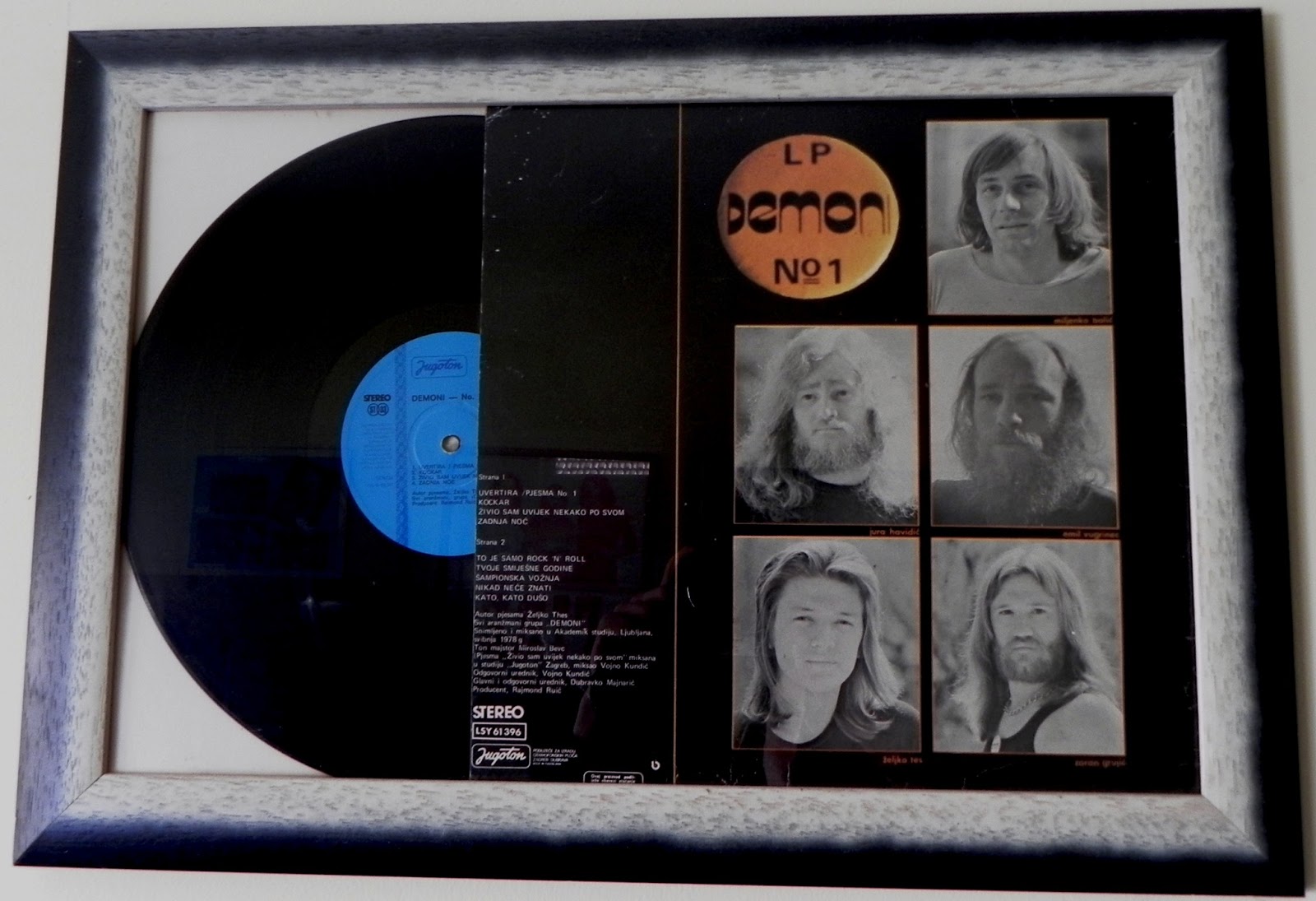
When you came back, you were called Demoni –Fire. You put out a single in 1979, right?
Yes, that single was called “Šarena mačka”, and on the other side was a translation of “If You’re Alone Tonight”, I think it was called ‘Kad priđem, tad se osveti.’
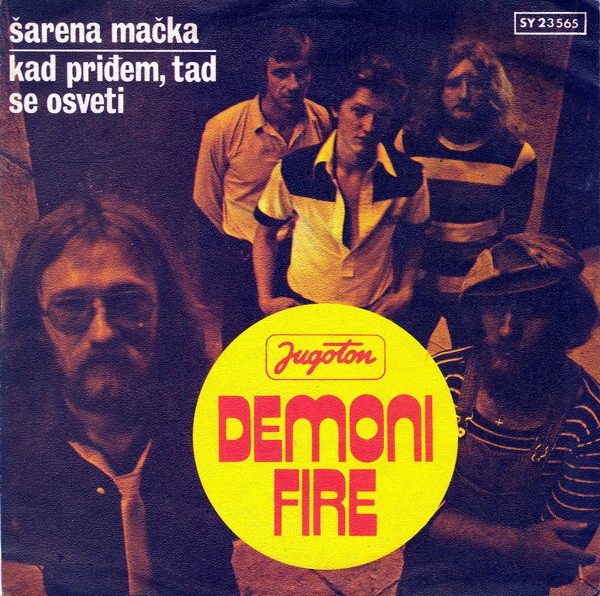
Did you have anything to do with the band Horoskop?
No. After I left Demoni – Fire in 1980 – there was a split in creative ideas in the band – I left for Zagreb and everybody else was from Čakovec. They didn’t want to use the Demoni – Fire name anymore so they named themselves Horoskop. But it’s basically the same band, without me.
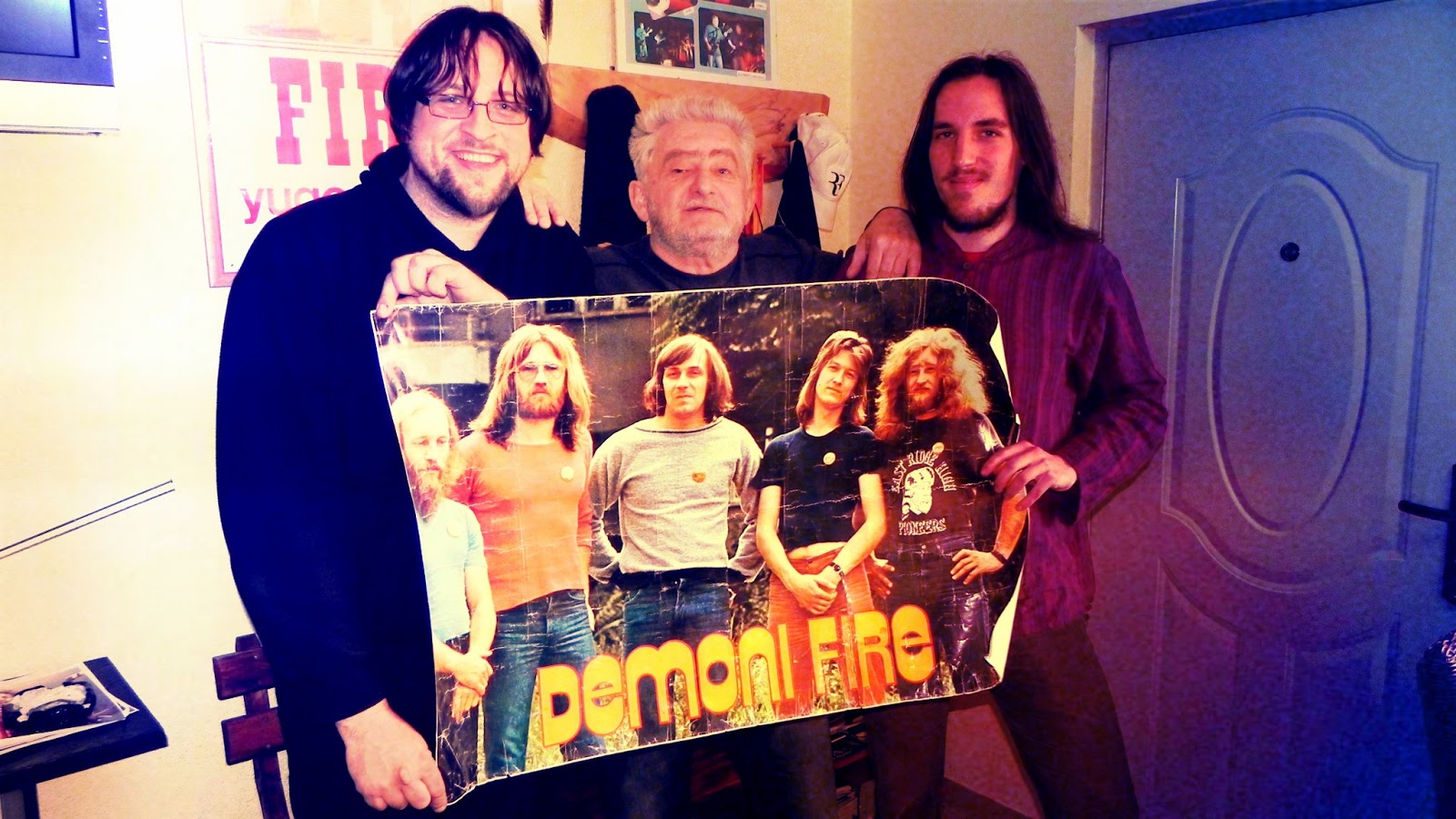
What did you do after that?
I played in a good band from Zagreb called Izazov. After that, for a brief time, we had a group called Daj. We wanted to make a well produced album in Jugoton with that band, but again there were creative differences among us. We had a good keyboard player, he was young, 19 years old. And we had a drummer called Pišta, he’s a famous session musician. Keyboard player was Rajko Puclin from Varaždin. I think he plays jazz now, he’s a good musician. Then, from 1981 to 1985, we had a cover band called Biseri. Lots of famous musicians played in that band.
Balić and Vugrinec were from Čakovec, and you were originally from Zagreb, right?
Yes.
How often did you play Yugoslavia?
We did one tour a year. I had to come home at least once per 3 months because I was officially a tourist in Germany, so I had to come home every once in a while.
You told us the story with the hat earlier. So people here didn’t know you were Yugoslavian?
No, that was a one off thing. It was our management’s idea, we didn’t like it, we thought it was a fraud, which it was, on out management’s behalf. But they paid us well so we went along with it. Our English was too poor to pass us off as a British band, but we could get away with being Scandinavian or from Holland.
Do you know any other bands from Čakovec, since it’s such a small town? Were there any others?
Well, there were some tiny little bands, as I call them. Demoni were the legends of Čakovec, the oldest band from there, but I can’t really recall any others.
Did you ever have trouble with Yugoslavian authorities?
No, not at all. Except with customs officers at the border. They pulled us out every time and searched everything, checked all of our equipment But those customs officers were not too bright. For example, we modified the standard 4×12 guitar box so it held 8 speakers. It was so heavy nobody could lift it. But they never figured out stuff like that, all they were interested in were serial numbers, haha.
Later on, I would come home to visit, with trendy ripped jeans and huge hair and beard, driving a brand new Mercedes. And I always had a couple of thousand German marks in my pocket. And everybody would be staring at me: what is this? You know how people were then, western imports were cool, and domestic was not. And I’d pretend I was German and asked the doorman to park the car for me, and he would bow, “Yes, sir!”, and I gave him 20 marks. And I thought to myself, “What a dumbass!” (laughs). That car was actually Balić’s and I shouldn’t legally drive it across the border as a tourist.
You now own a studio. Do you want to tell us about it?
Well, finally my dreams came true. Since I was young, I always wanted to have a studio so I can do what I love. I work here myself, and my son works here a lot, too. My son is a guitarist, so I have a good successor, a great guitarist. He plays in the band Aerodrom and he’s a professional musician. He finished musical high school, classical music. But one day he said he’s had enough of piano, he wants to play guitar. He found my old Gibson behind the closet and started playing. And I asked: “Who’s gonna teach you?” And he said he’ll do it himself. He found lessons and tabs on the internet and he had a good classical background from school, playing piano. And he learned to play guitar very quickly. He’s 25 now, he plays for 12 years, but he plays as good as he was playing for 40 years.
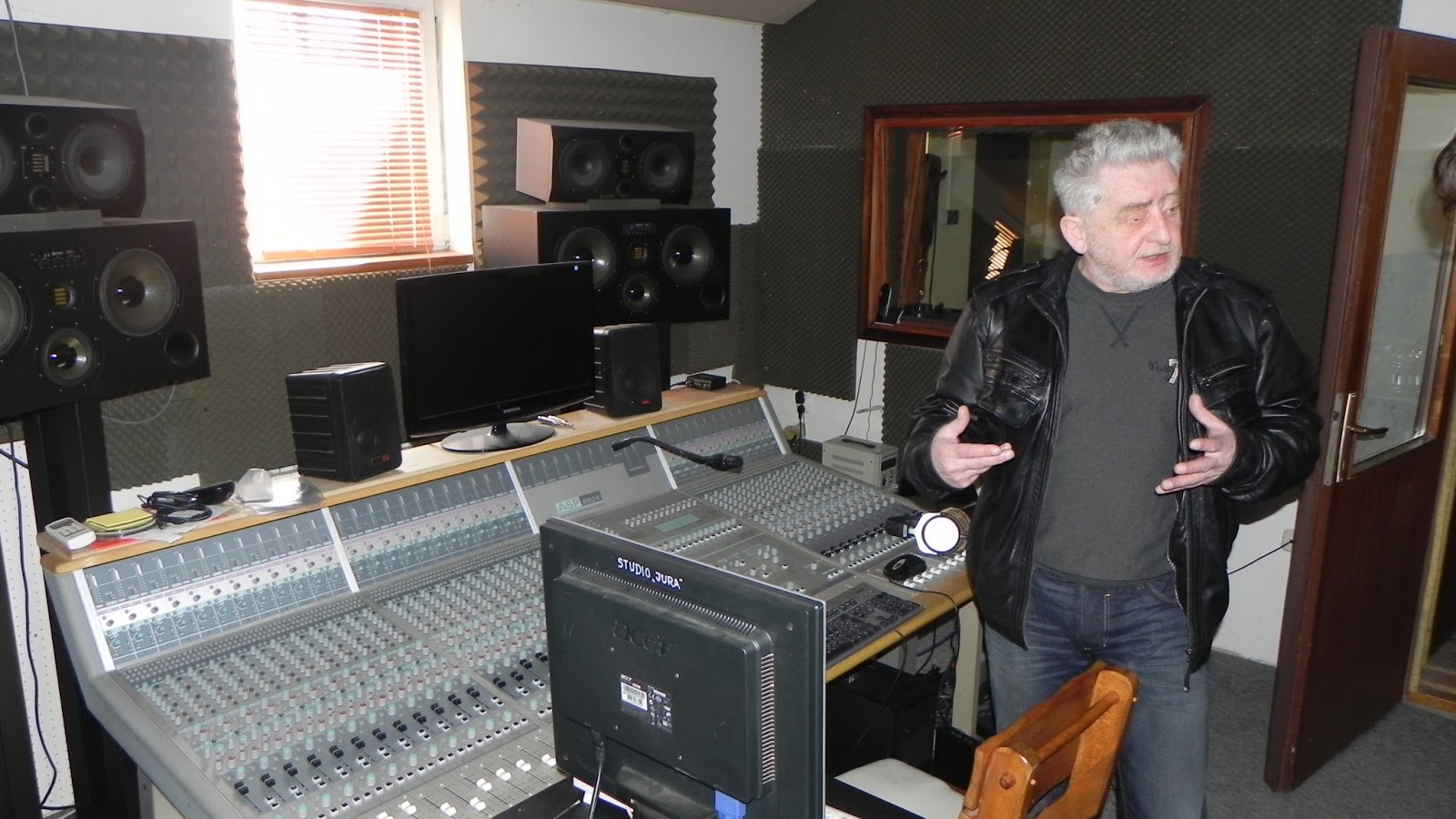
I have to ask you about the LP cover.
Cover was made by a dutch painter named Jan Tilln. By coincidence, we lived for a while at our producers ‘Jupps van Heys’ place, and Jupps asked him to give us an idea for a cover. So he gave us this thing, which is in fact a huge painting in some black and white technique, I don’t know how you call it. They put this on the cover and that was it. It’s a really interesting painting. (smiles): this painting is really fitting nowadays, for this dirty world and politics. (stares at the cover for a while): Man, it’s a really perverse cover.
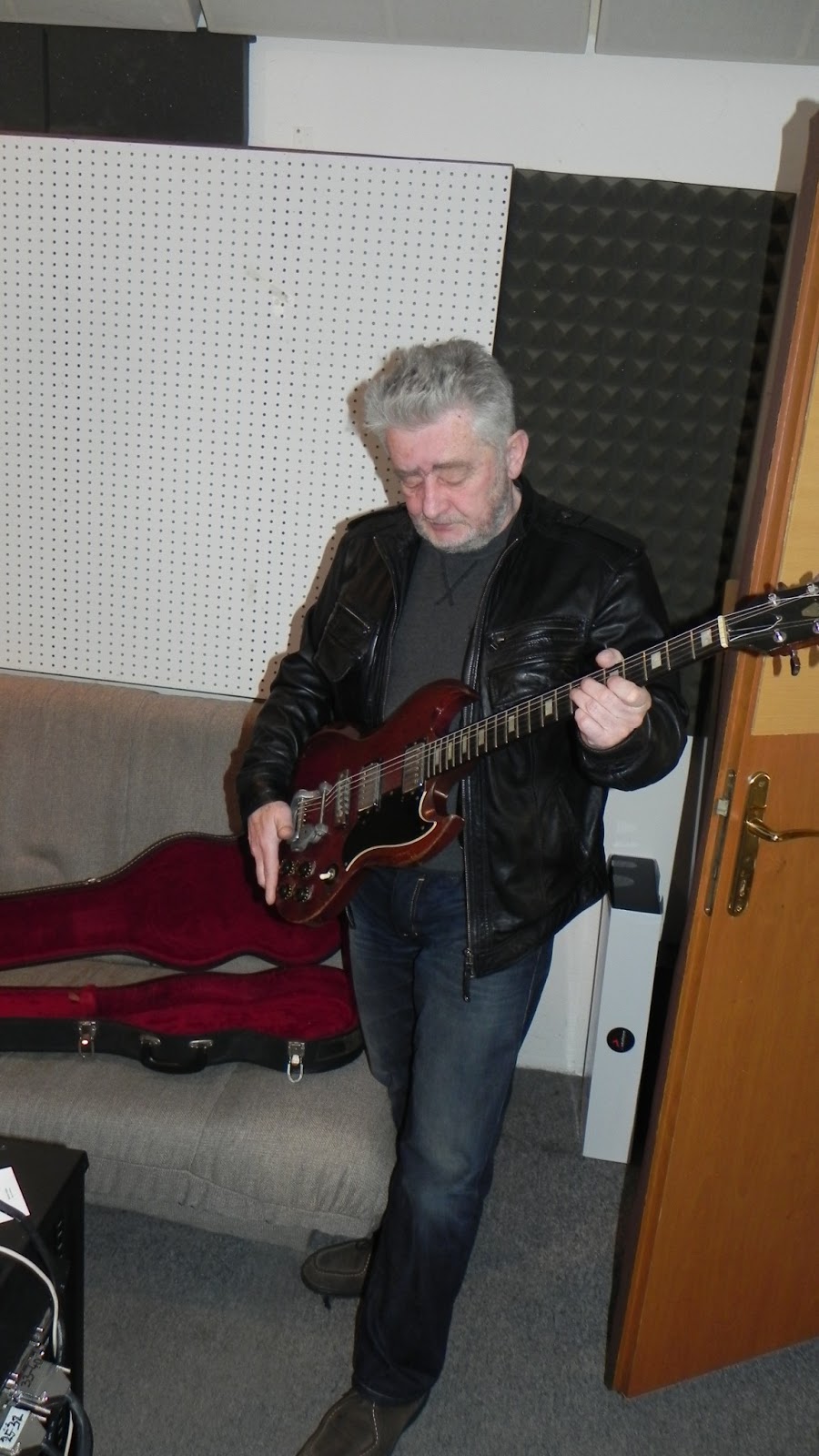
Do you have a message for Fire fans around the world?
I would like it if somebody from the 70s that I know would contact me. You can put my e-mail address there (ad.studio.jura@gmail.com), I would really like that. Thank you.
– Matija Štumberger & Klemen Breznikar

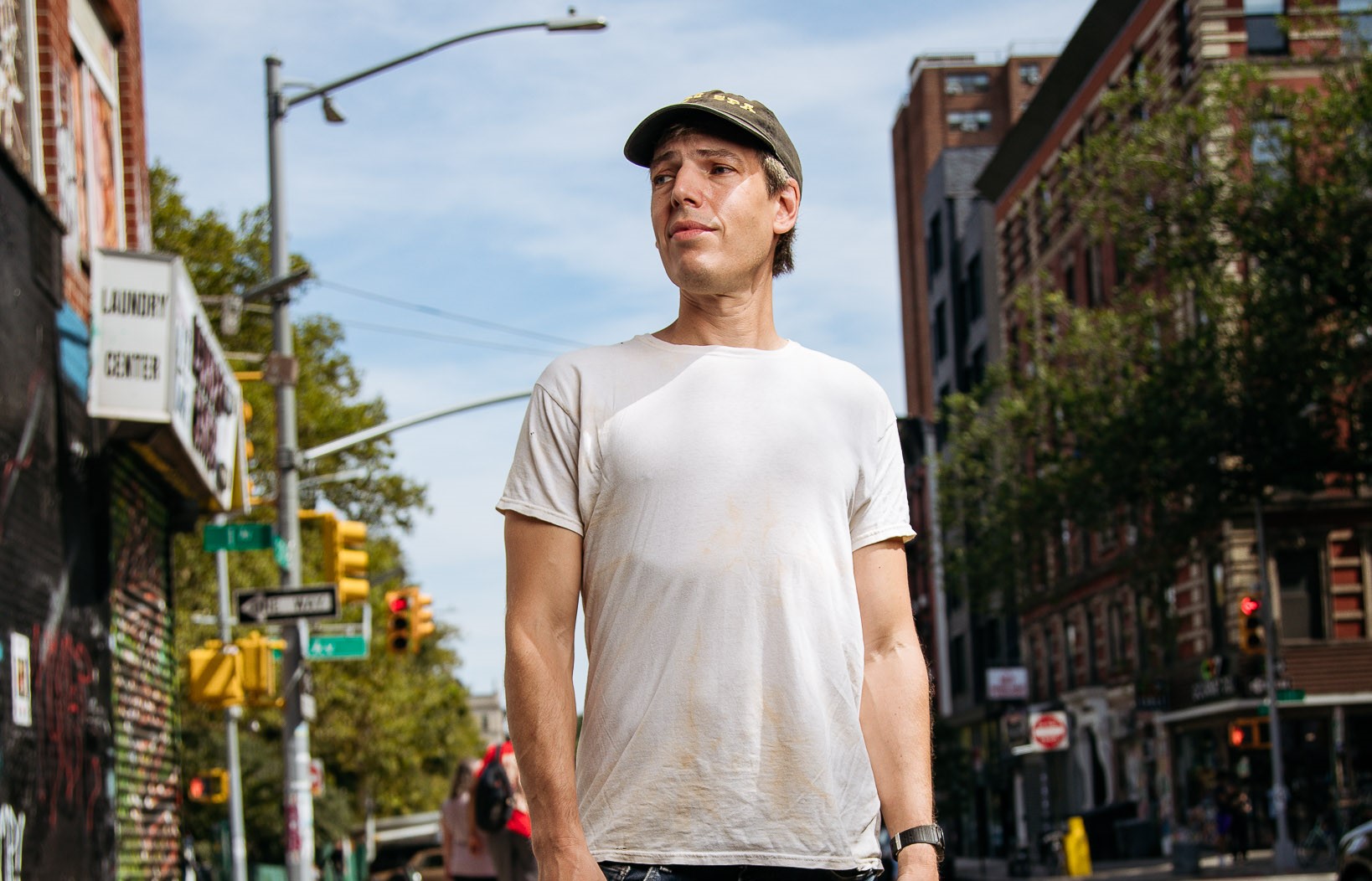
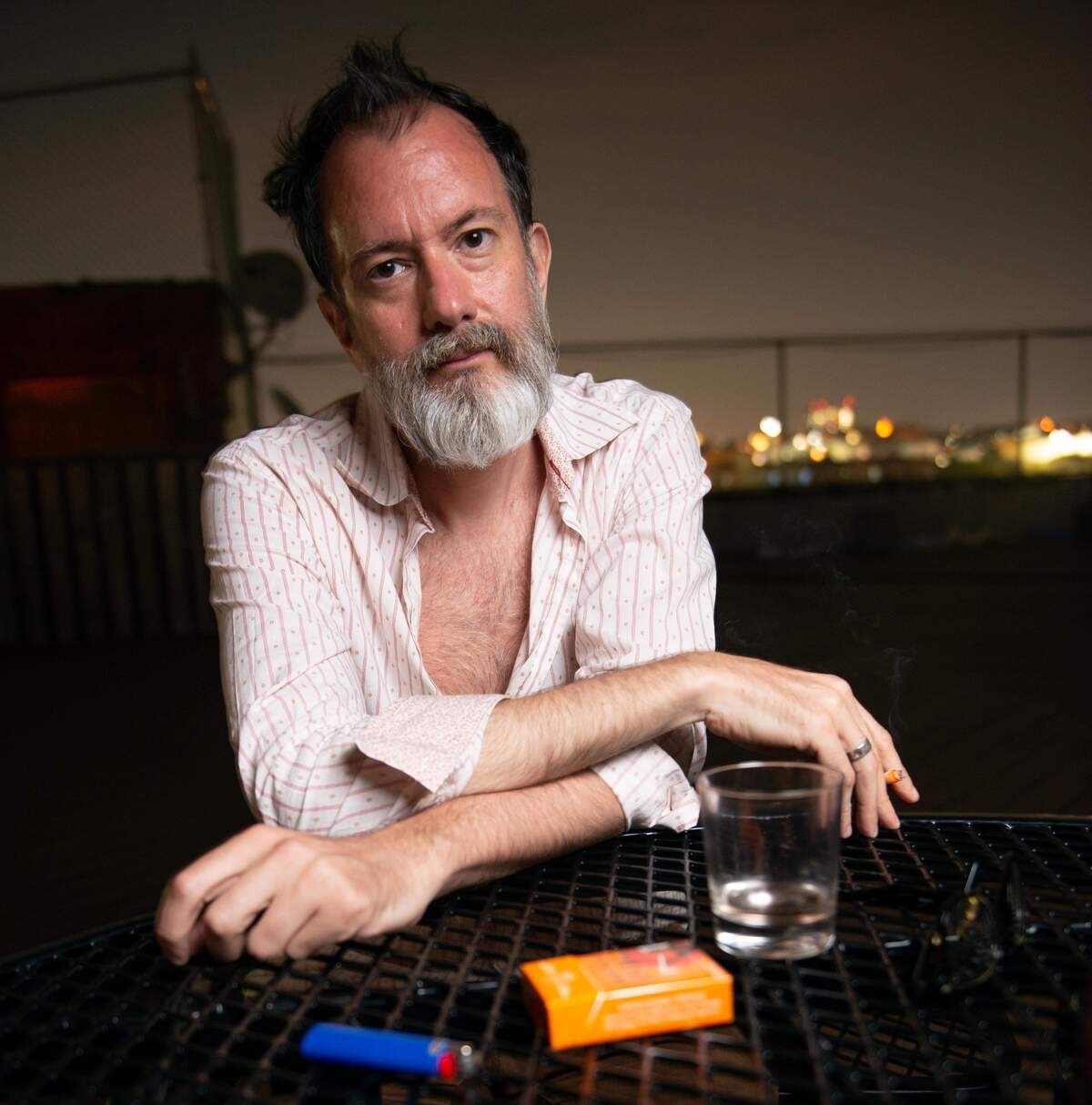

Exellent interview Klem! That cheap guitar probably explains that monster raw guitar tone Fire had..
Thanx a lot appreciate your effort